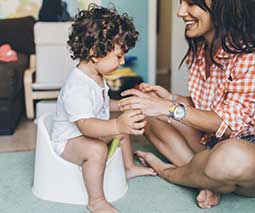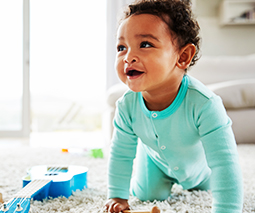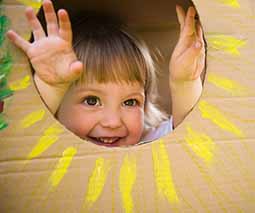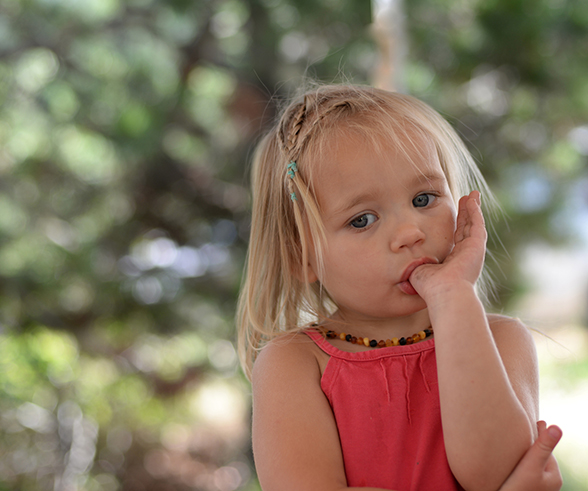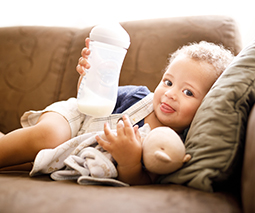Maggie Dent’s top 12 tips for parents of toddlers

I was recently toddler land, with three little grandies under three – with two busy toilet training – all in one house — mine!
There is no better way for a parenting educator to brush up on old skills than having a living refresher course in front of them.
This time has given me moments to experience first-hand what so many parents live with every day and reaffirmed much of my message about being good enough, imperfect parents!
Teaching and guiding our little toddlers to become competent and capable physically, emotionally, socially and psychologically is a full-time, 24/7 journey that will test any mature human being’s potential to be compassionate and patient. When sleep deprivation is thrown into the mix it can be really difficult to manage these precious little beings in a warm and loving way, without resorting to coffee or chocolate (often before breakfast)!
So here are my top 12 tips
1. Living with toddlers
Especially between the ages of one and three, is like walking on eggshells or living in a war zone and nothing can be definite or predictable. That is OK and normal. Relax your expectations and go with what is – and this will change many, many times during the course of one day. Aim to be flexible and let go of your grown-up plans – seriously, some days I never made it to playgroup because my sons’ sleep needs collided with a ‘shituation’ that took a whole lot of energy to tame – and then there was just one sibling conflict too many!
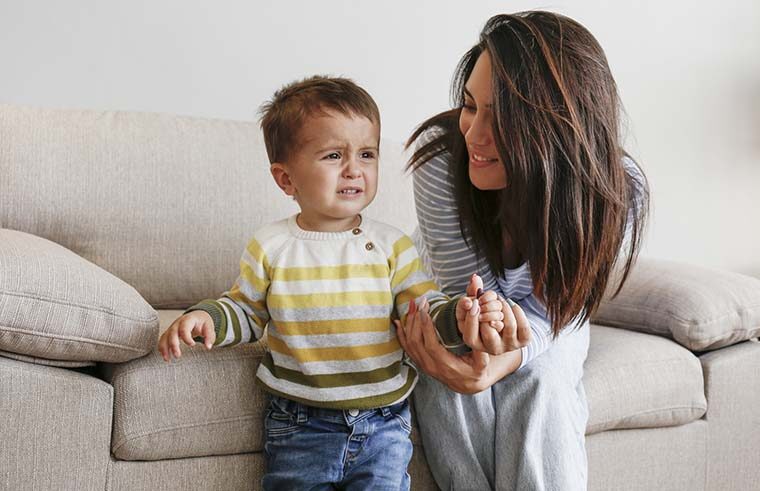
2. Communication
This is one of the biggest areas of frustration in toddler land. Helping to work out how to meet an unmet need of a little person who has no words, or whose words you simply cannot identify, is incredibly frustrating for both of you. Know that toddlers cannot hear what you are saying when they are struggling with big, ugly feelings – even if you shout! Being able to see the world through their eyes can really help. Learning to pause, get down on their level and really listen – often to what they’re not saying – can be incredibly helpful and also respectful. You could try my parental pause …
3. Allow some quiet in their lives
Just because adults can successfully navigate a world where there is a lot of noise, talking and visual stimulation, does not mean it is something that toddlers can enjoy full-time. Consciously create times where there is little stimulation, no noise and space for a child to enjoy being quiet and possibly still.
4. Meals and snacks
Toddlers are often not hungry when grown-ups think they should be hungry and they often have days when they are not hungry at all, followed by a day when they eat unbelievably well. All of this is completely normal. They also seem to have fads around food, where they will love something and then decide they don’t like it. Please don’t get disappointed when your child refuses to eat something you have lovingly prepared – they don’t mean to personally wound you. Choose to offer food that is as close to nature and as unprocessed as possible and be prepared to share what’s on your plate, as that often looks far more appealing.
5. Sleep or not
Toddlers are on the journey of being able to feel brave enough to sleep by themselves in their own bed, hopefully for a full night! There are so many things that can influence a toddler’s capacity to do this. Night terrors can begin in toddlerhood that can be really frightening for parents, because the toddler has no idea they are happening. Some toddlers are more sensitive and have a higher touch need than others, and may fall asleep and indeed, sleep better with a safe grown-up nearby.
Trust your own instincts about your children and how to meet their needs around the area of sleep. I can still remember feeling so disappointed when each of my lads dropped their day sleep. I had so enjoyed that little time of peace and quiet with a good cup of tea, refilling my own energy cup. I can guarantee you that one day your child will find someone else they want to sleep with and it won’t be you!
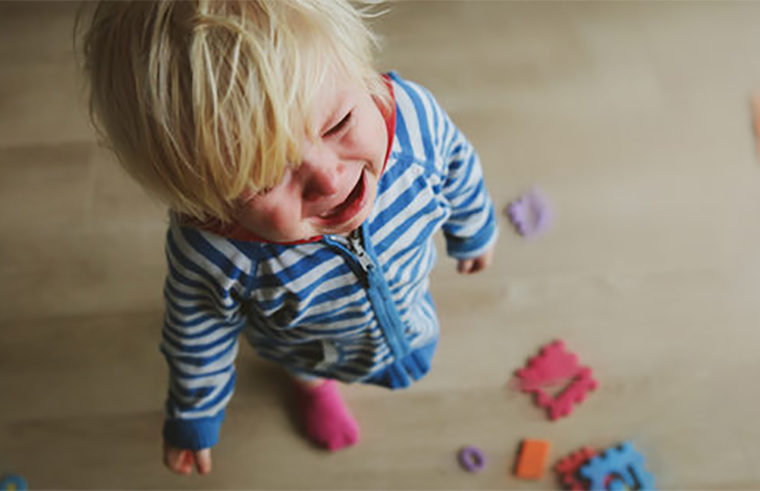
6. Growing emotionally and socially
The research is clear that children under three are unable to understand what sharing is, so know that there will be many times when they will snatch and sometimes shove another child who has something they want. Helping them to validate big, ugly feelings – especially frustration, disappointment and anger – assists our children in learning about feelings and how to cope. Try not to punish them – instead, keep the endless record going of the need to be fair and kind, and model it. We used a lot of “let’s swap” with our almost three – and almost two-year-old grandies over and over! Cousins in close proximity can really help toddlers master some of the tough social skills, as it’s a bit like an intensive boot camp. No really, it can help!
7. Energy and self-regulation
Heck, how tricky is this? Some mornings your toddler wakes up full of energy and enthusiasm, and others … ughhhhh! So all your wonderful parenting plans go out the window. A trip to the beach or the park can look like it’s going so well with everyone happy and having fun, and all of a sudden their energy tank is empty and it’s a massive meltdown or ten minutes of endless sobbing like the world is coming to an end. And it takes ages to restore their happy neurochemicals – ages of teeth gritting, soothing sounds and hugs that are often rejected!
This struggle with energy is also normal and no matter how attuned you are to your toddler, you can have these energy depletion moments. It’s important to remember that in these moments, our little ones are not being naughty, they are simply struggling to cope. Breathe and know they gradually disappear. Self-regulation takes time and it is a huge part of toddler development!
8. Growing autonomy and independence
It is our job to raise our children to be capable and independent and that means they need practise making their own choices – and they sure know they need to do this! “No” and “I do myself” become very frequent and the moments of angst when you use the wrong colour cup, cut their sandwich in squares not triangles, or their sister looks at them when they would prefer she didn’t – oh, and the back-arching refusal to get into their car seat – UUGGGHH.
I remember one little niece once bursting into tears because my mum had mashed her potato and she wanted it “stuck together!”. Again, no matter how frustrating, these challenging moments are not only developmentally normal, they are really important in the growth of a child’s sense of self and individuality.
9. Building grit and resilience
Toddlers are so busy mastering walking, then running, climbing and everything in between. Stairs – yikes – how long does it take to conquer these? It takes ages and yes, that means grown-ups need to offer hours and hours of support! There is no shortcut – other than endless practise. The bumps and bruises and scrapes and cuts need to be seen as signs that your toddler is learning and growing, and helping them to see ‘ouchies’ as manageable and do-able. We may have used a couple of packets of band-aids as the various ‘ouchies’ needed to be fixed. It can be hard not to make too much or too little of moments when our toddlers hurt themselves, however, we are sending messages of their growing ability to cope.
Another tip is to allow your child to take risks and climb higher than what you may be comfortable with – breathe and allow. Remember, when they fall, before you swoop in and scoop them up in your loving arms, pause and ask, “Are you OK or do you need a grown-up’s help?”.
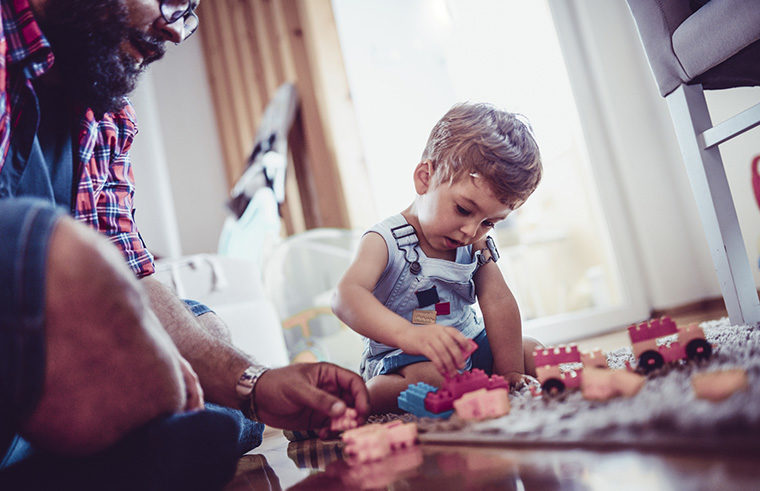
10. One-on-one time
One of the best things that can happen when you have more grown-ups than toddlers is some sacred one-on-one time. I was often the favourite to be present in the bathroom for the ‘wees’ and ‘poos’ moments … “No Mummy, not you – Nanny.”
Making small windows in your busy lives to have some fun one-on-one times with your toddlers – and your other kids – will bring you massive rewards. Sometimes just ‘being present’ without saying a word – just offering the occasional smile or nod of the head – can be more powerful than endless questions and interrogations. For example, “what colour is that block?” or “well done, building those blocks” or “what shall we do next?”. Please step back occasionally and allow them to make the decisions without your well-intentioned prompting and encouraging. This allows the growth of their own autonomy and individuality!
11. Respecting these little miracles
There is a huge difference between commanding and policing our toddlers, to requesting and guiding! If we could speak to our children as we speak to our best grown-up friends – we can reduce their need to push back and we can build a much more connected, warm relationship. Talking down to small children diminishes both you and them – and please, when you ask them to do something, wait for them before asking gently again. They take longer to consider your requests – and I mean maybe a minute or two – so give them that time. So often they will do what you request! Putting pressure on them, especially too quickly, can trigger their primitive brain to go into fight-flight mode because their sensitive little brains are still maturing to be able to identify real threats from minor discomforts.
12. Curiosity and wonder
Our toddlers are biologically wired to learn as much as possible as quickly as possible because their little brains are in the business of building neural connections so they can predict and anticipate how life is going to turn out. Their core business is to move as much as possible and to explore anything they have never seen before – and copying what grown-ups do is a huge part of how they learn. They need to use all their five senses as much as possible – yes, that’s why they sometimes put awful stuff in their mouths! So when your toddler opens and spreads your expensive night cream or lipstick everywhere they are not planning on being naughty – they are learning about that stuff. Unravelling toilet rolls is another huge learning opportunity and yes, flushing the toilet is a peak experience. One little boy toddler had so much fun flushing his mum’s knickers down the toilet while saying “All gone!”. She lost about 20 pairs before he lost interest because he had mastered that activity.
If you reframe these moments – like my beloved toddler grandies who drew crayons on my hallway walls – and practise my technique that helps to celebrate the toddler genius, you will manage these moments of curiosity and wonder better – maybe?

So, focus on the gifts
This wonderful, juicy, fascinating window of your child’s life is a unique time for learning and so often when the moments of resistance need to run free, when the meltdowns come because you cannot understand what they are trying to tell you, when the endless questions just don’t end – breathe and know that this is normal! These challenging moments are happening in almost every home that has a precious toddler living within its walls. Natasha Daniels has a similar sense of toddler land.
When it gets tough, remember you are not a lousy parent — things will get better. You will lose your cool – yes, you will have moments when you want to act like a toddler and throw a tantrum too, and you will need to apologise from time to time – this is also normal!
I also invite you to hold a special place of compassion for those who have toddlers who have serious disorders, or a disability or a life-threatening illness because those toddlers still need to walk the same journey. Sharing the journey with a caring family and/or supportive friends can make this ride a little easier.
Every stage of child development has gifts and challenges – please try to focus on the gifts. Toddler hugs and snuggles are beyond precious and seeing the world through their eyes of wonder and fascination is beyond beautiful.
I am loving revisiting toddler land and feel blessed to be a special part of my grandkids’ and my great nieces’ and nephews’ lives. I had to wait such a long time for this and I am planning on creating memories that matter, over and over again.
This article was written by Maggie Dent and was republished with permission from her website. Read the original article here.
 Need some support to be the best parent you can be? Our Parent School parent coaching experts can help. Click to find out more or book a one-on-one session.
Need some support to be the best parent you can be? Our Parent School parent coaching experts can help. Click to find out more or book a one-on-one session.
